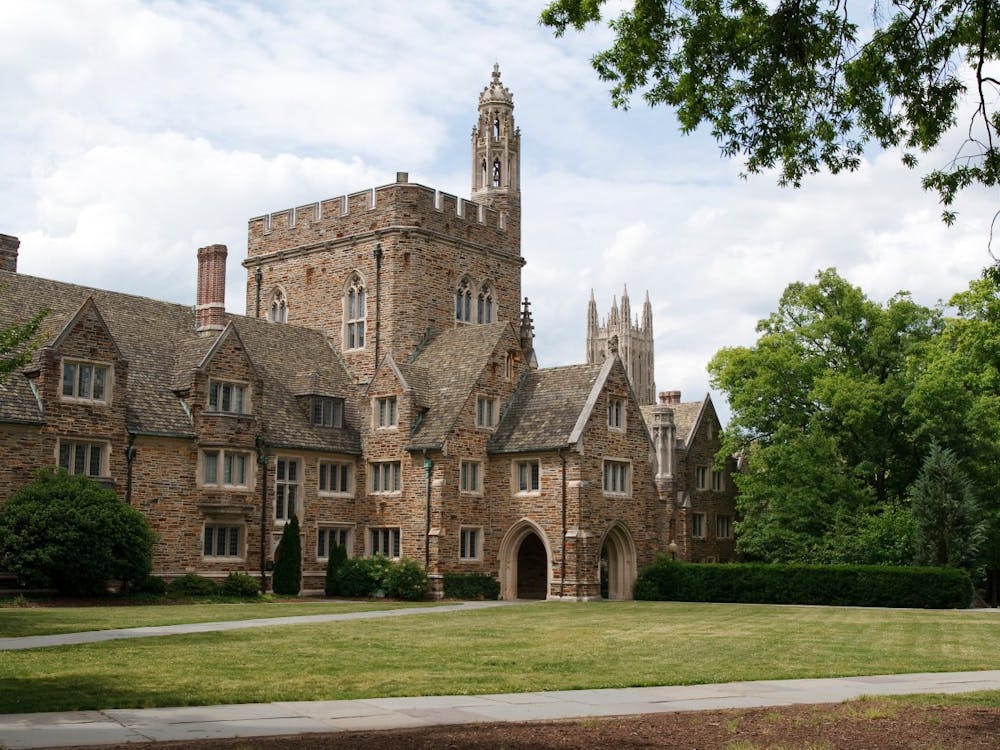When seven fraternities cut ties with Duke in the wake of recent reforms to rush and selective living—to be later joined by two others—senior Shreyas Gupta wasn’t surprised. But he says there’s “nothing redeemable” about the announcement.
As a founding member of Abolish Duke IFC & Panhel, a group that’s been working to get rid of 24 Duke fraternities and sororities since last July, Gupta met with Duke administrators throughout the fall semester to advocate for changes to selective social life on campus.
The resulting changes, which include pushing rush from freshman spring to sophomore fall and moving selective living groups to Edens quad for the 2021-22 academic year, were “very modest” compared to the changes discussed in those meetings, said senior Christine Bergamini, another founding member.
“In our talks with Duke administrators, we had said that we highly doubt fraternities would ever comply with the reforms in any way that would lead to meaningful change,” Bergamini said. “And I think this just confirms that, because they wouldn’t even comply with the modest reforms that have been instituted.”
Junior Will Santee, president of the newly formed Durham Interfraternity Council, defended the decision to disaffiliate in an email, writing that administration’s reforms would be “detrimental to our ability to function as on-campus fraternities.”
He wrote that delaying recruitment and limiting section to juniors and seniors were decisions “strongly opposed” by fraternities and made it difficult for chapter leaders to “envision their fraternity continuing their operation as an on-campus organization.”
“Each individual chapter made a decision that they would be able to foster a better fraternal community by not being affiliated with Duke,” he wrote.
Nine fraternities have now disaffiliated from Duke’s Interfraternity Council: Alpha Epsilon Pi, Alpha Delta Phi, Alpha Tau Omega, Delta Tau Delta, Kappa Alpha Order, Pi Kappa Phi, Pi Kappa Alpha, Sigma Chi and Sigma Nu. The disaffiliated fraternities have since formed the Durham IFC, which began a recruitment process on Sunday.
According to the Durham IFC Facebook page, the new council plans to “address issues within Greek life, focusing on diversity and inclusion, hazing prevention, and ensuring the safety of guests at fraternity events.”
Gupta called this statement “a slap in the face.”
“It’s one thing to say you're doing this to protect fraternities, but it’s another to say you’re doing this to be better and more inclusive,” he said. “It’s like, no, you’re not. Don’t now co-opt what our movement stands for.”
Bergamini added that it is possible that the disaffiliations will discourage students who are on the fence about joining Greek organizations from rushing “ambiguous, underground groups.” However, the members of Abolish Duke IFC & Panhel worry that the move off campus will decrease opportunities for diversity within Greek life.
“The few things that Duke did when [the fraternities] were affiliated, such as sending out rush scheduling, information about open houses and fraternities in general, those were on official Duke sites,” said Gupta. “Every student at least got access to them.” Without Duke to facilitate this access, “now, the process has become even more exclusive, and it’ll just continue down this road of white, wealthy students attracting more white, wealthy students,” he said.
The disaffiliated fraternities will no longer have access to resources like funding or trainings provided by the University, but will still operate under the guidance of their national organizations.
Santee wrote that the decision for chapters to disaffiliate was done to “increase their independence and autonomy of their chapter rather than protect them” and that they will still follow the same rules as all other Duke students.
“We did not feel welcome by Duke administration as on-campus organizations, so we formed the Durham IFC and plan to use it as an opportunity for reform. We are excited to examine the ways in which we can improve fraternities for the betterment of members and their guests,” he wrote.
Santee wrote that the Durham IFC attempted to combat exclusivity during this year’s recruitment by eliminating the $75 fee to participate in rush “to ensure low-income students could participate” and advertising the information session through multiple platforms. He added that they recognize there is more to be done to increase diversity and inclusion, which they are “excited to act upon.”
Bergamini said she thinks recent changes to campus residential life were “still a step in the right direction to decrease Greek life’s hold over the social scene.” But now, the path forward for Abolish Duke IFC & Panhel looks even rockier than before.
In the coming weeks, the group hopes to push the University to make an official statement condemning systemic problems they see with Greek life, including racism, sexism and gender violence, homophobia, and classism.
“We’ve made multiple requests to administrators to make a public statement to acknowledge these issues, because the issues, regardless of their stance on Greek life, do exist,” Gupta said.
He also suggested placing restrictions on members of off-campus groups similar to the regulations created by Harvard University in 2017, which barred members of single-gender organizations unrecognized by the university from holding student leadership positions.
Bergamini said that the recent disaffiliations have not changed Abolish Duke IFC & Panhel’s goal of encouraging students to “take individual responsibility” by boycotting recruitment or by dropping their Greek organization.
Get The Chronicle straight to your inbox
Signup for our weekly newsletter. Cancel at any time.

